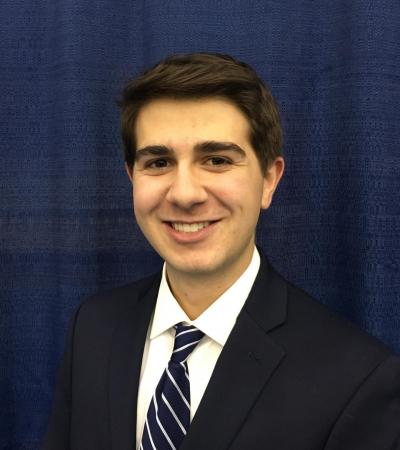WorldTeach, Cape Town, South Africa
Summer Entrepreneurial Internship Program
WorldTeach
Cape Town, South Africa
Summer 2017
I had been to Cape Town, South Africa once before my Entrepreneurial Internship experience with WorldTeach. My two experiences were very different. My first visit was a five day spree of trying to see as much of the city as possible. I went to all the major landmarks: Table Mountain, the V&A Waterfront, Cape Point, etc. However, what I remembered most about Cape Town was the stunning inequality present in South Africa. While I was travelling from landmark to landmark, I would drive past townships that hid another part of South Africa that is not on many tourists’ agendas. I left Cape Town knowing that I would be back one day to experience that aspect of the country. I am fortunate that WorldTeach is a program that empowers its participants to be change agents in communities that need assistance. It is an organization that teaches you about the history, politics, culture, and people of South Africa just as much as you will teach your students.
What drew me to WorldTeach instead of other programs is its flexibility. The local WorldTeach coordinator expertly balances the roles of a leader, mentor, teacher, and friend while you are under his supervision. You will learn to be a better person under his guidance and perhaps you will even learn to appreciate his unique sense of time. He works with volunteers from all over the world year-round, so he will do his best to find living accommodations, teaching accommodations, and excursions that explore your passions and capture the essence of South Africa. Each WorldTeach-South Africa program is different. As such, the coordinator does not have an agenda for the participants. Instead, he caters to your desires. For me, this was an important part of why I chose WorldTeach. I told him about myself and where I would be comfortable, and he devised my teaching plan.
The program is split into three parts: an orientation, first rotation, and second rotation. The orientation will take you all over the greater Cape Town area. You will hike Slangkop in Kommetjie, whale-watch in Kalk Bay, and walk with baboons at Cape Point Preserve. This is in addition to learning about the communities (Masiphumulele and Oceanview) where you will work, the history of South Africa, and the education system in South Africa. At this point in the orientation (or before), you discuss your living situation plans. Homestays and communal lodges are both options. Personally, I lived in both situations, and my advice is to choose whatever makes you most comfortable.
The next two parts of the program are when you get to make an impact. This can be in the form of teaching in preschools, primary, or high schools, volunteering with local non-profits, working alongside social workers in the communities, and assisting in understaffed daycares. You will discuss which program is right for you depending on your prior experience, interests, and subject-interests. In my first rotation, I taught at Ikamva’s Winter School in Masiphumulele, a historically black township. In the second rotation, I assisted in a fifth grade classroom at Kleinberg Primary School in Oceanview, once designated a “colored” community. The experiences were vastly different. At Ikamva, I was the sole tutor for groups of four to twelve high school learners. This gave me a level of responsibility and authority that was difficult to quickly overcome. If you are a calm person, your interpersonal management skills should develop rather quickly. Nevertheless, I sometimes found it a challenge to work with consistently off-task and disruptive students. The experience taught me how to balance professionalism with friendliness, authority with compassion, and criticism with appreciation. These are large takeaways for having tutored with the learners for only three weeks, but the experience forced me to step out of my comfort zone and to learn quickly.
My other three weeks at Kleinberg Primary were equally as rewarding, but organized differently. I shadowed in a fifth grade classroom for the remainder of the time, and I felt more pressure to truly make a difference with the learners. Oceanview is a community ridden with senseless violence. During orientation, I was told boys as young as thirteen were recruited by gangs. Meanwhile, my learners were between ten and twelve years old. I knew this was a pivotal point in their life, but I also had to confront the reality of how much time I had with these students. Nonetheless, I did what I could to foster their intellectual curiosity and encourage learning. I worked with learners struggling with reading, helped in mathematics, and played games during recess. It may sound simple, but learning to be a role model is more difficult than you would suppose. Hopefully, I managed to do this. My favorite memory of WorldTeach was at Kleinberg on the last day. A few of the learners surprised me with handmade cards expressing their gratitude for very specific actions I had taken in the classroom: sharing a snack, helping to spell a word, and helping on a math problem. It reminded me that the world gets changed with small acts of kindness.
In my opinion, learning to manage my own expectations for volunteering was the most important part of WorldTeach. I think everyone wants to be the panacea for other people’s troubles. This is not just difficult, it is impossible to solve all the problems you will encounter in only eight weeks. Nonetheless, working with WorldTeach is necessary. The organization can empower you to perform those small acts of kindness that leave lasting impacts. The greatest gift you can impart while teaching is sharing a love of learning. Volunteers who exercise compassion, enthusiasm, and determination while assisting are likely to leave an impression. WorldTeach leaves you feeling fulfilled, but also better prepared to act in service of others for the rest of your life.






